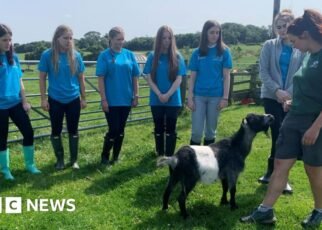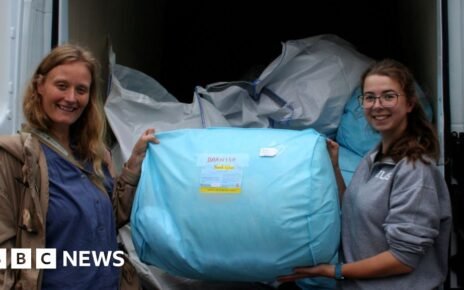[ad_1]
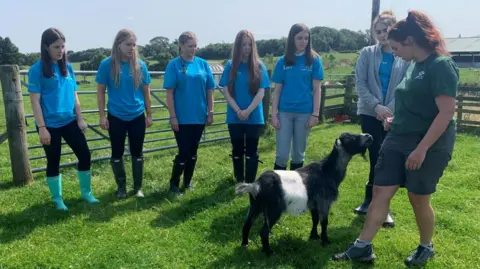 BBC
BBCAs a child, Dr Karen Gardiner always wanted to be a vet but it was a dream she never fulfilled.
Instead she pursued her love of animals through the academic subject of zoology and later a PHD in marine mammals.
However, her two daughters have both chosen to become vets and Dr Gardiner could not be prouder.
Having managed to help them to vet school, she was inspired to start up Future Vets Scotland to help other parents and would-be vets navigate their way to that career.
It’s a timely initiative.
Currently there is a shortage of vets across the country but it is particularly acute in the most rural and remote areas.
“A lack of vets will impact everyone who consumes Scottish farm produce or owns a pet,” Dr Gardiner says.
“And there has been an exponential rise in pet ownership especially after Covid.”
A realistic view
Sheila Voas, the chief veterinary officer for Scotland, believes the serious shortage of vets is exacerbating the sheer amount of on-call work expected in some practices.
That means some vets are leaving the profession early or others are deterred from considering it as a career.
She says it is all about going into it with your eyes open and picking the kind of practice that best suits you.
“There’s never been a better time to apply to vet school,” Ms Voas says.
“Even if your high school doesn’t offer three sciences at advanced level, actually if you make that clear on your application, it can be taken into account during the application process.”
She believes giving school-leavers a realistic view of what the profession can offer is key to getting these places filled by students who will have long, fulfilling careers.
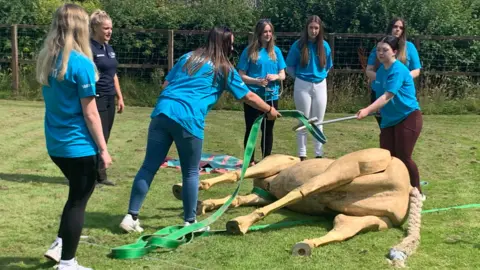
That is exactly what the latest initiative by Future Vets Scotland is trying to do.
This week saw its first ever camp for 16 and 17 year olds from all around Scotland, who are thinking of becoming vets when they leave school.
The 46 teenagers, who all applied to take part, were able to get hands-on experience of what life as a vet might be like.
Based at Scotland’s Rural College site in West Lothian, they were out in the fields with goats and alpacas.
There was even a practical lesson in how to help a large animal like an injured horse.
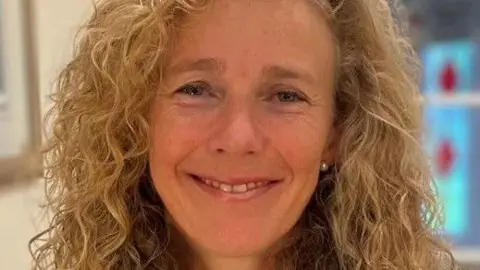
Dr Gardiner says it has also been about giving them the confidence and connections with the vet schools, who sent instructors, and the chance to meet others their own age thinking of the same path.
She says: “That is enormously helpful since they are likely to be the only one in their school who is choosing to be a vet.”
Among those taking part was 17-year-old Emily from Renfrewshire.
She says getting up at 02:00 to help out a struggling animal in a cold barn is not daunting.
“You know you are going to make an impact on the farmer and the animal’s life by helping them, that’s just part of the job,” she says
Another young prospective vet, 16-year-old Millie, travelled to the camp from Islay.
She already has her own ponies and helps out on her grandfather’s farm.
Millie says: “I would be happy to become a vet and go back home to Islay, it’s a really nice place to live.”
She would no doubt be welcomed back with open arms by the farmers and pet owners of that most rural of communities.
[ad_2]
Source link
